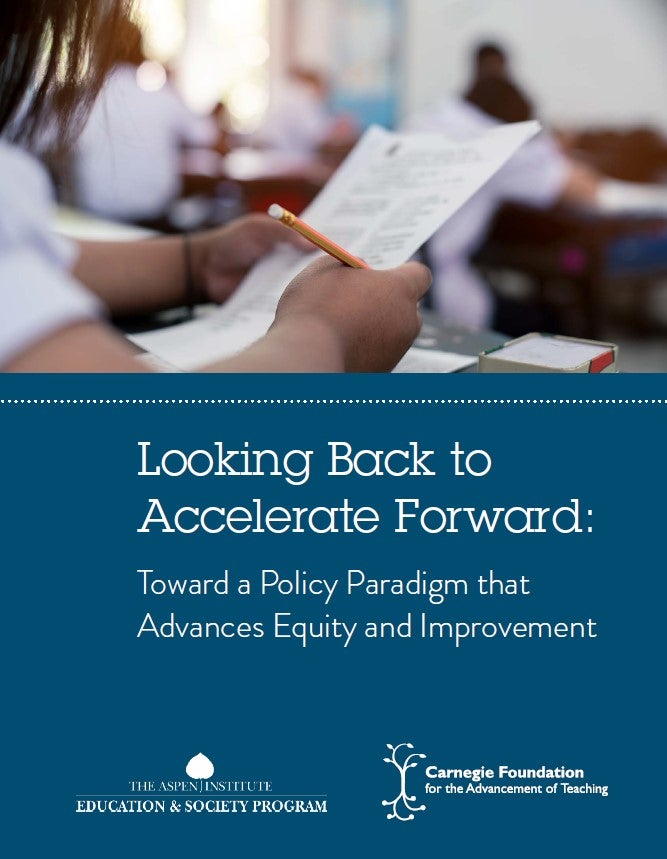The U.S. education system is facing severe challenges, including student learning loss, declining academic performance, a youth mental health crisis, and increasing absenteeism. Yet these challenges also provide a catalyst for transformational change. But a new paradigm for education cannot be done without the support for transformative school leaders.
The Aspen Institute Education & Society Program invites you to attend a virtual release event on Wednesday, December 11, 2024 from 12:00-1:00PM EST for our latest brief, “Revolutionizing the Principalship: Bold Bets to Elevate School Leadership,” authored by Megan Bennett and Dr. Lorén Cox. During this discussion, a panel of experts will provide an overview of the innovative policy solutions outlined in the paper and review strategies that have worked to elevate the principalship that they have supported.The U.S. education system is facing severe challenges, including student learning loss, declining academic performance, a youth mental health crisis, and increasing absenteeism. Yet these challenges also provide a catalyst for transformational change. But a new paradigm for education cannot be done without the support for transformative school leaders.
The Aspen Institute Education & Society Program invites you to attend a virtual release event on Wednesday, December 11, 2024 from 12:00-1:00PM EST for our latest brief, “Revolutionizing the Principalship: Bold Bets to Elevate School Leadership,” authored by Megan Bennett and Dr. Lorén Cox. During this discussion, a panel of experts will provide an overview of the innovative policy solutions outlined in the paper and review strategies that have worked to elevate the principalship that they have supported.








